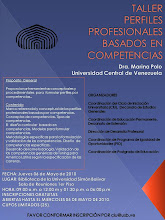
PRIVATIZATION OR MARKETIZATION: EDUCATIONAL DEVELOPMENT IN POST-MAO CHINA
KA HO MOK
In the post-Mao era, the reformers have taken significant steps to privatize social policy and social welfare. Revamping the social security system and commodifying social services have become more prominent since the mid-eighties. Despite the post-Mao leaders' discomfort about the term "privatization", signs of state withdrawal from the provision of social policy and welfare are clear. The author argues that the emergence of private educational institutions indicates that China's educational development has gone through a similar process of privatization or quasi- marketization though the Chinese experience is different from that of Western coun- terparts. Specifically, this paper tries to examine how the flourishing market economy and the policy of decentralization have affected the development of China's higher education. No longer solely relying on public schools, private and minban (people run) educational institutions are becoming more popular in the new socialist market system. This paper attempts to examine how privatization and quasi-marketization have affected educational development in mainland China. The paper concludes with a discussion of the policy implications of the privatization of education in China.
.png)




0 comentarios:
Publicar un comentario